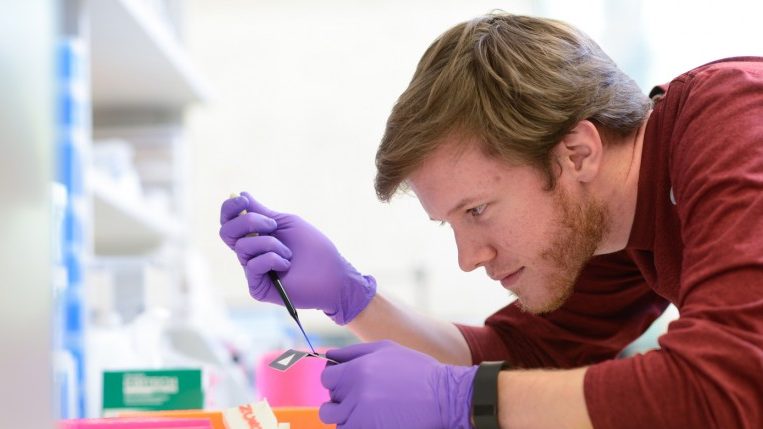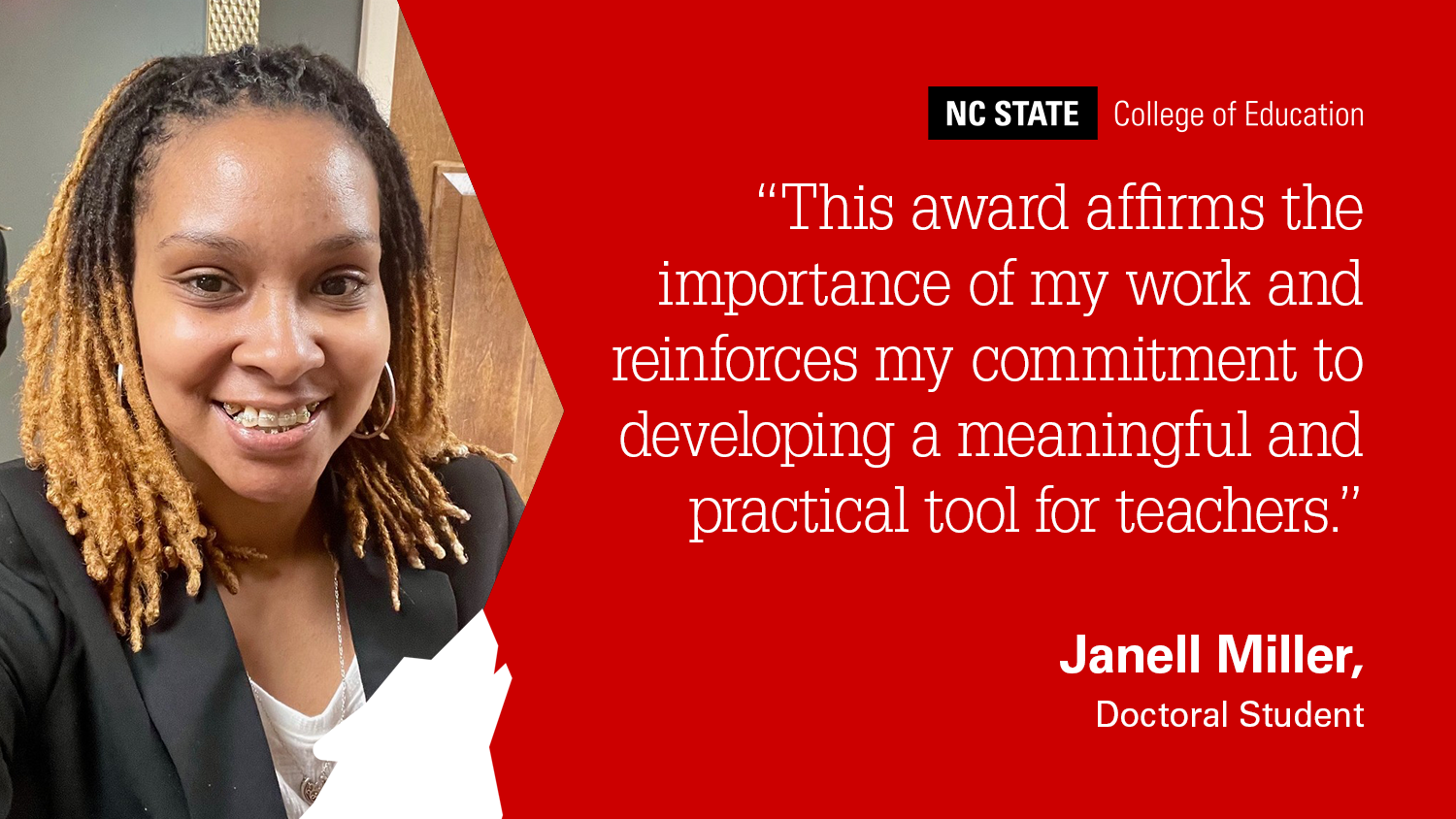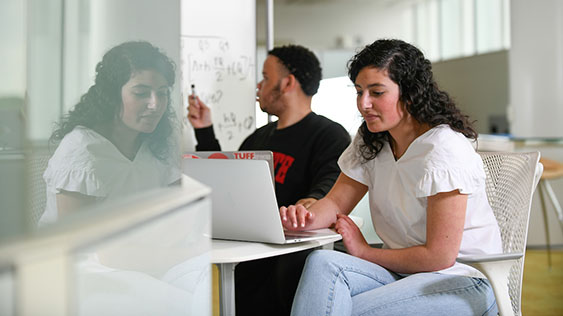Dear Graduate Students Living in a Pandemic World: You Are Not Alone
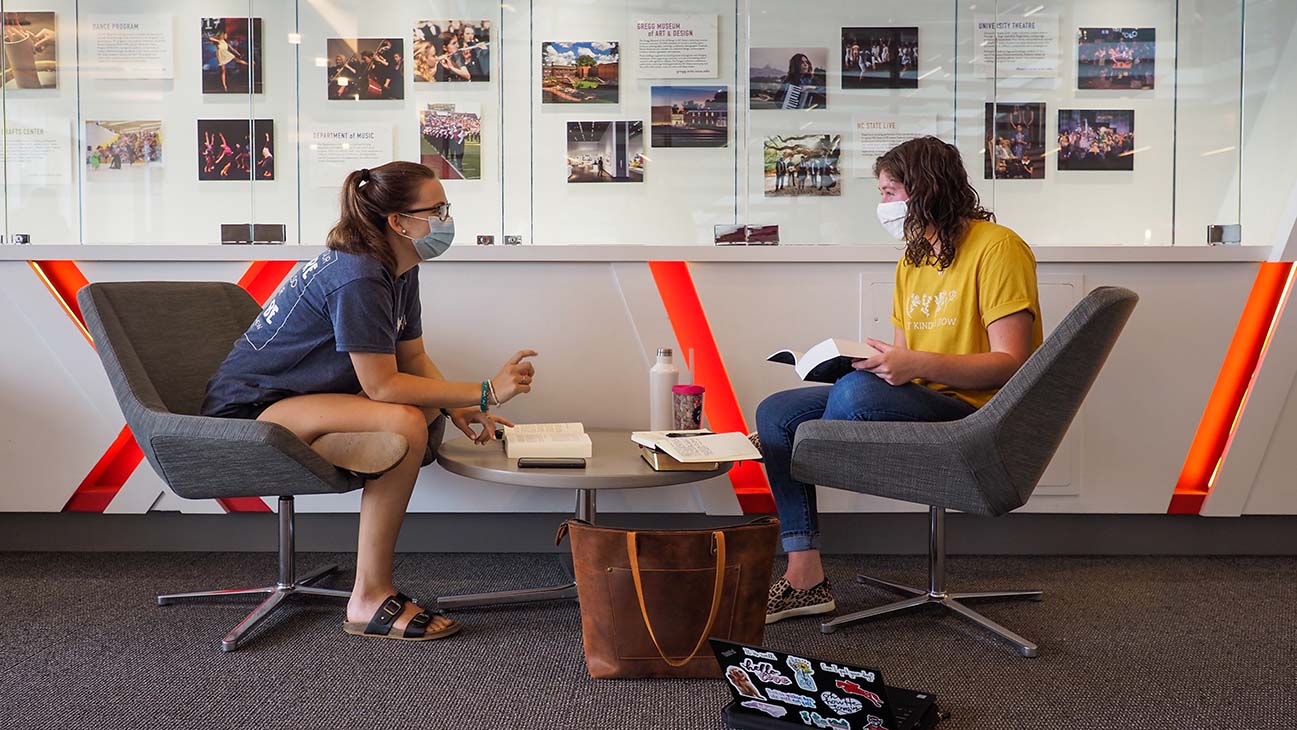
Graduate students are leaders in their fields and will play a vital decision-making role in this country’s future. Graduate students comprise our top scientists, innovators, educators, and thought leaders. Make no mistake, COVID-19 has impacted ALL of our lives, but this story will shine a light on how the virus has affected graduate students. How are graduate students building relationships with their classmates and professors? How are they completing lab work or group projects? Most importantly, how are they handling all of this while maintaining proper mental health?
Nikki’s Story
Nikki Inglis, a Ph.D. student in geospatial analytics, is juggling research, publication deadlines, dissertation proposal, committee meetings, planning for exams, and preparing for her career after graduate school. Nikki’s committee meetings, conferences, and all student events and seminars have been held online. She’s currently working from her mom’s house out of state, but plans on returning to campus soon. Because Nikki is a data scientist, she’s been able to continue her work mostly uninterrupted via remote computation resources provided by her program, college, and library services.
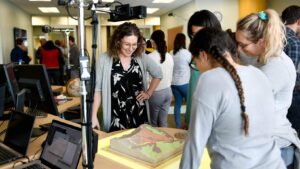
The most significant COVID-19 impact stems from the lack of opportunities to collaborate with classmates and the use of the tangible tools located in her lab on campus. However, Nikki’s dissertation does not depend on using these tools. Her advisor has reshaped her remaining dissertation chapters using tools that she already knows and has available. “It’s not a pleasant thought, but conceivably I could finish my Ph.D. 100% virtual if need be,” states Nikki.
In addition to her coursework, Nikki volunteers as a Mental Health Ambassador for the NC State Counseling Center. She “travels” via Zoom to classrooms and campus events to share information about Counseling Center resources and dispels the stigma of seeking help for mental well-being.
The Counseling Center has been instrumental in Nikki’s success at NC State. Her relationships with her counselor and psychiatrist have helped her navigate the ups and downs of her Ph.D. program, especially since the beginning of remote learning.
For Nikki, COVID stress manifests in three distinct ways:
- Existential – general fear about the pandemic, its effect on society and our future, how different the world will look when she graduates
- Physical – lack of access to the gym and other normal exercise options, especially when physical activity is one of the most powerful coping mechanisms
- Social – isolation and lack of connection to her peers, she misses talking about work and research with colleagues
How has Nikki been dealing with the added stress of COVID-19? She’s been coping by seeing a therapist, being consistent with medication, and spending time outdoors with a small group of friends. However, Nikki is concerned about the winter weather causing exaggerated impacts on her mental health this year due to lack of exercise and outdoor activity options.
In Nikki’s conversations with other graduate students, she believes the most common theme of COVID related stress in graduate students is social isolation.
“I can’t imagine what it’s like to be a new student and not have those random encounters in the hallways, or inspiring conversations after seminars. It’s discouraging, and students are grieving.”
Deveshwar’s Story
Deveshwar Hariharan, a graduate student from the College of Engineering, recently converted to a Ph.D. program from his master’s program at the end of the spring semester. He also serves as the vice president of communications for the Graduate Student Association.

COVID-19 has negatively affected Deveshwar’s progress in the engineering lab during the past six months. He is part of a team that is developing an economical transportation solution for campus. COVID had a minor impact on his team’s progress, but never entirely stopped. They were limited in their abilities to conduct real-world experiments but were able to run a myriad of simulations.
On a more critical level, COVID-19 had a severe impact on Deveshwar’s health. In early July, Deveshwar and his roommate both tested positive for the virus. Fortunately, Deveshwar was asymptomatic. Since he tested positive, Deveshwar had to quarantine for 14 days. He relied on buying groceries online through Amazon, and he ordered meals through Uber Eats.
“The most depressing part of the experience was that I wasn’t able to do my exercises regularly given the lack of motivation that stemmed from being cooped up at home.”
Mentally, Deveshwar was going through a rough time shortly before the pandemic, so COVID exacerbated the symptoms. The lack of regular human interaction was taking a toll on his mental health. Luckily, Deveshwar reached out to the NC State Counseling Center to seek help. He is grateful for the Counseling Center’s support and hopes that other students take advantage of this valuable campus resource.
A Professor’s Perspective
Michael Kay has been a professor of industrial engineering at NC State since 1992. He is the interim director of the operations research graduate program and is associate director of graduate programs in the industrial and systems engineering department.

Michael currently teaches a graduate-level course for 40 students in logistics engineering that is computationally intensive. Before synchronous class time, the students watch pre-recorded lectures given by Michael. Then, during synchronous class time, students have a chance to contribute to discussions and ask questions. Michael has found this method much more effective than pre-COVID class lectures, which didn’t allow for as much student feedback and interaction.
Michael has also seen an improvement with regard to his office hours. He has been holding all of his office hours via Zoom, and the screen sharing option that Zoom provides has been an added benefit. Michael has been preparing his class to switch to a flipped format for several years, so the change to remote learning has not been that difficult.
Prior to COVID-19, it was common for Michael to have students discuss their academic-related stress-level issues. Surprisingly, since the pandemic started in March, he has not heard from any students with stress-related problems.
“Before the pandemic, students would voice concern that they uniquely were somehow not able to cope. I think seeing everybody struggling has, to some extent, made each student’s stress not seem as much of a concern.”
Resources for Students
- NC State Counseling Center: The expense of counseling, whether individual, group or drop-in is covered by your student fees.
- NC State CARES: Students, faculty, parents, and others are encouraged to report behavoirs that they feel are concerning or worrisome.
- Protect the Pack: Answers COVID-19 related questions including community standards, personal protection, self-reporting, and testing and tracking.
- Categories:
